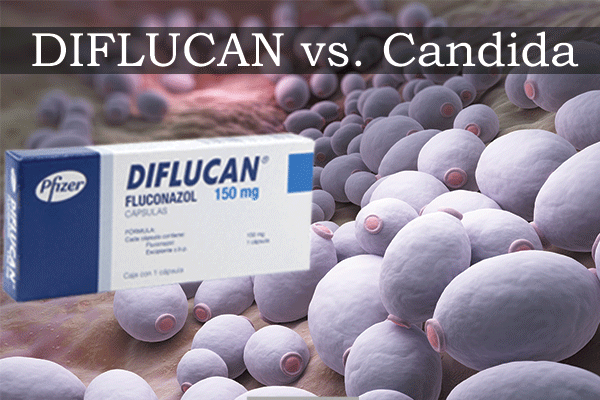
Natural Remedies for Candida Albicans: Effective Yeast Solutions
|
|
Time to read 3 min
|
|
Time to read 3 min
|
|
Time to read 2 min
For people who suffer from digestive distress, yeast infections, or skin irritations caused by candida overgrowth, they have certainly come across Diflucan or Fluconazole commonly prescribed by conventional doctors. However, many are also exploring natural remedies for yeast infection as a complementary approach.
Diflucan is the anti-fungal pharmaceutical solution for systemic fungal infections in western medicine. However, when listening to the experiences of many patients and progressive physicians, it's clear Diflucan is less effective than a well-formulated natural alternative. People who really battle against resilient fungal infections and want the added benefit of not damaging their own immune system or digestive health - should consider natural alternatives beyond their doctor's advice if Diflucan is prescribed.
We have discussed candida at length in previous articles and we highly recommend you read them if you're interested in understanding this topic better. See below for links:
Let's be honest, most people want to solve their health problems and move on with their life - we get that. The reason candida is so hard to treat is because it has been around since the dawn of time and developed very advanced defense mechanisms.
By the time you start to see and feel systemic overgrowth, candida has gone beyond the digestive tract, into multiple systems of the body and is facing down the immune system. To be successful in battling candida, the outer shell must be enzymatically broken and only then can the fungus be neutralized.
Diflucan users report varying degrees of success. Most find mild relief, but experience a return of their symptoms if their diets still include simple sugars and carbohydrates. Still others have very little improvement and choose to alter their diets in addition to taking Diflucan to get any kind of noticeable relief. This is to say nothing of the numerous side effects of taking Diflucan, listed below:
The best-formulated products combine enzymes (both cellulase and protease) with leading antifungal ingredients. Many of these ingredients are also anti-parasitic, which is a nice bonus as there are always parasitic organisms in the lumen of the digestive tract. The basic core of ingredients to look for include; oregano, caprylic acid, walnut hulls, wormwood, and garlic (all have proven clinical studies). We would caution users that too much oregano extract over an extended period of time can do damage to the digestive tract, just to be aware. Additionally, following a candida diet meal plan can support the effectiveness of these natural remedies.
Our product Candida Complex has helped thousands of people, many of which report to us they started with Diflucan with mediocre results after spending a lot of money and time. We are delighted to produce a product that is constantly improved and tested in clinical settings to help people regain their health. We have also limited the amount of oregano extract to enable consistent use of Candida Complex without fear of GI tract tissue damage. As with all our products - there are no harmful additional excipients (other ingredients) to worry about. Incorporating antifungal dietary supplements like Candida Complex into your routine can be a powerful part of a natural remedies for candida approach.
Understanding natural remedies for candida albicans is essential for those seeking to improve their health without relying solely on pharmaceuticals. These remedies often include a combination of lifestyle changes, dietary adjustments, and the use of specific supplements. Here are some natural ways to fight candida:
By integrating these natural remedies for vaginal candida and other forms of candida overgrowth, individuals can often find relief and support for their overall health.
Supplements play a critical role in managing candida overgrowth. The best supplement for candida yeast will often include a blend of ingredients specifically chosen for their antifungal and immune-supporting properties. Some key components to look for in a candida overgrowth supplement include:
By choosing the right supplements, individuals can enhance their ability to treat yeast infection symptoms naturally and effectively. Remember, a holistic approach combining diet, lifestyle changes, and the right supplements can lead to better health outcomes.
Best of health to you and yours.